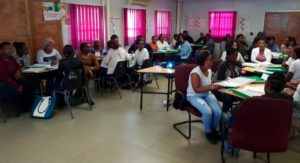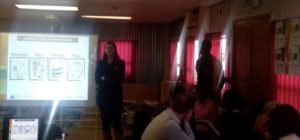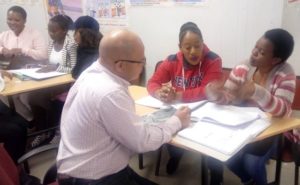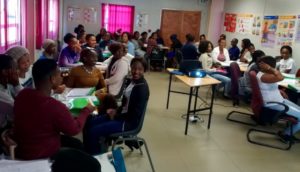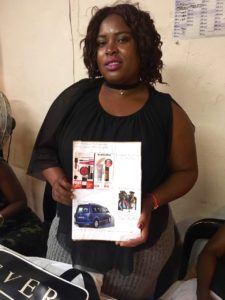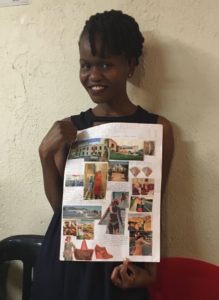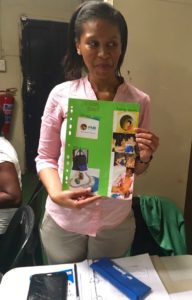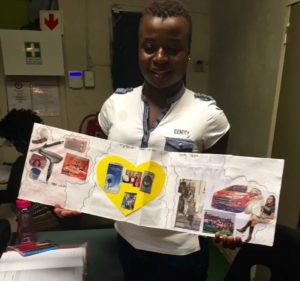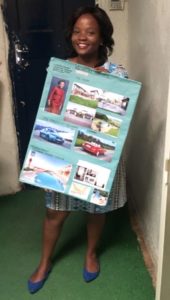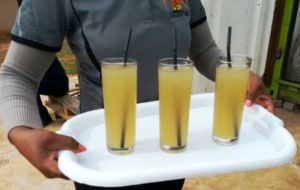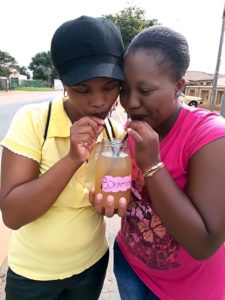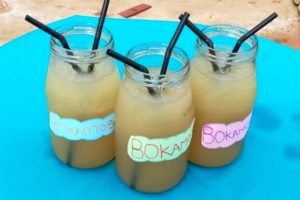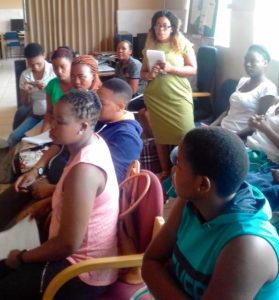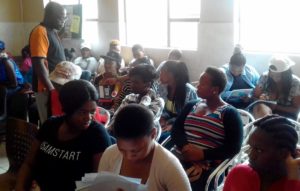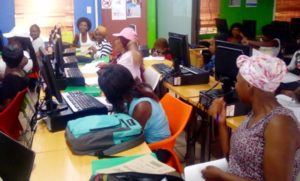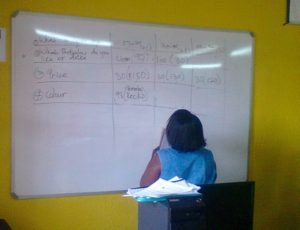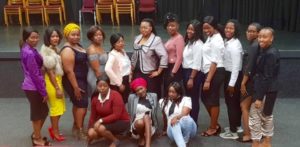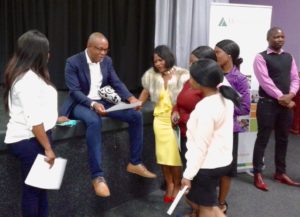Many fledgling businesses came out of the Mastercard-funded Youth Enterprise Development Programmes 2018
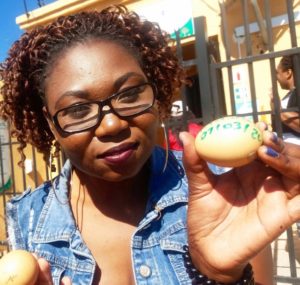 In 2018, Mastercard funded six Youth Enterprise Development Programmes targeting young women, which were hosted at four centres in Gauteng, one in Limpopo and one in the Western Cape.
In 2018, Mastercard funded six Youth Enterprise Development Programmes targeting young women, which were hosted at four centres in Gauteng, one in Limpopo and one in the Western Cape.
After the 20-week incubator phase participants were then offered mentorship for a further six months. Learners who completed the programme, and were assessed as competent, received Services SETA NQF level 4 accredited certificates.
The aim of the mentoring programme is to further assist the students with establishing sustainable businesses and link them to support structures and opportunities that will help grow their aspirations, such as gaining access to business finance as well as study and placement opportunities.
Ivory Park, Gauteng
In Ivory Park, Sibusiso Mkhwanazi mentored 16 students who had collectively created six businesses. One participant created Ladies on a Mission, with the aim of providing ready-to-cook meals. This entailed doing research and networking with suppliers and farmers to engage on pricing and shape a viable business model.
Another entrepreneurial endeavour, The Ambassadors, are in the process of researching organic products to nourish hair. Mkhwanazi recommended that the team apply to SEDA’s Soshanguve Manufacturing Technology Demonstration Centre programme for small-scale manufacturing assistance. This SEDA incubation centre could provide help with blending their products and gaining market access.
Fat Cakes and Chicken Dust are in the process of applying for funding from the SEDA Technology Programme (STP) which provides up to R200 000 for the purchase of machinery so they can buy a food trailer and other equipment to make food and could also assist with other services, such as technology transfer.
Mastercard volunteers spent time with the students.
Olievenhoutbosch, Gauteng
Part of the process of shaping a business is to create a vision board:
Heidelberg
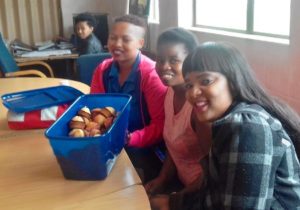 At Les Coaching Development Centre, in Heidelberg, 17 participants continued with the mentorship phase and within this group, they had eight operational businesses. Programmes Coordinator Bonga Khumalo ran the mentorship sessions.
At Les Coaching Development Centre, in Heidelberg, 17 participants continued with the mentorship phase and within this group, they had eight operational businesses. Programmes Coordinator Bonga Khumalo ran the mentorship sessions.
Some participants had teamed up to form businesses making and selling cakes, muffins and juice. At the start of the mentorship phase some of the challenges identified by company team members were lack of commitment from some members, poor communication and poor financial reporting and accounting.
On the positive side, the company Mvelo, which was formed as a breakaway from the initial business Ubiciko, had designed a logo for their juice, made some profit from sales, and were targeting funeral parlours to supply refreshments during funerals.
As the mentoring phase continued, Mvelo set a turnover target of R60 000, which would entail selling 6000 units of ginger beer and juice. The team managed to secure a loan of just under R2000 for production. In order to register their product with the SABS they will need to register their company and copyright their product, as well as procure a barcode. Their plan is to gain more clientele in the funeral parlour industry and market their business on social media.
Palm Ridge
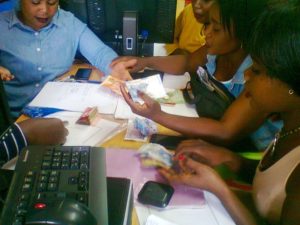 Team Flavour are utilising their sewing and knitting skills to make blankets using cotton, fleece and wool and they aim to expand with bed sets and matching curtains. Ginger Babes have found a way to cook chicken without the risk of burning it, through a strategy of soaking the chicken in salt water.
Team Flavour are utilising their sewing and knitting skills to make blankets using cotton, fleece and wool and they aim to expand with bed sets and matching curtains. Ginger Babes have found a way to cook chicken without the risk of burning it, through a strategy of soaking the chicken in salt water.
Reselling is one of the ways to shape a business. The company Achievers opted to buy and then resell tights, stockings and winter beanies while Next Owners have started to turn a profit from the resale of soft, fashionable face cloths and towels for babies. Scorpions buy watches and resell them.
There were many challenges that the companies have had to face, such as some team members not pulling their weight or some owing money, which had a negative impact on cash flow. Rising above these difficulties to pull together in a more professional and cohesive manner has been an invaluable learning curve for team members.
Matlala Community Centre, Limpopo
The seven companies created during the programme were quite diverse, including African Women Services, which provides a gardening service and TTSKK Enterprise, which runs a car wash and trades livestock. A local entrepreneur was invited to a session to share some lessons with the learners.
Delt, Western Cape
Field trips provide an inside glimpse into how established businesses run and the group from the Masakhe Centre in Leiden, Delft had the opportunity to visit the Coke Factory. Facilitator Jo-Anne Dreyer reports that the women were interested to see the production line, which brought home how important this aspect is for any business. They could not resist asking some questions about the syrup (though of course no details were forthcoming about the recipe.) Mastercard volunteers Thaakirah van der Schyff, Letitia Solomons and Sam Elsmorecary joined the women on the tour.
The participants created six companies that sold a range of goods from food items such as takeaways and samosa to accessories, clothing, and detergents.
The Mastercard volunteers also visited some of the other sessions and shared some important information about running a business. These interactions also provided the participants with the opportunity to recount their business journeys as the course progressed and to reflect on the lessons they learned in each of the modules.
Facilitators also helped the companies to work on their portfolios of evidence, which was a requirement to receive the accredited certificates.


